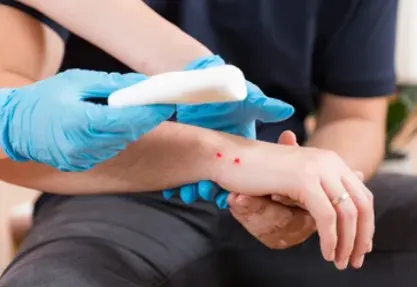 Welcome
Welcome
“May all be happy, may all be healed, may all be at peace and may no one ever suffer."
- A
- B
- C
- D
- E
- F
- G
- H
- I
- J
- K
- L
- M
- N
- O
- P
- Q
- R
- S
- T
- U
- V
- W
- X
- Y
- Z
Dehydration - Generics
Dehydration occurs when the body loses more fluids than it takes in. This can happen for various reasons such as not drinking enough water, excessive sweating, diarrhea, vomiting, or urinating more than usual. Dehydration can range from mild to severe, with severe dehydration being a medical emergency that requires immediate attention.
Mild dehydration can cause symptoms such as thirst, dry mouth, headache, and fatigue. As dehydration becomes more severe, symptoms can include dizziness, confusion, rapid heartbeat, sunken eyes, and dark urine. In extreme cases, dehydration can cause seizures, coma, and even death.
Prevention of dehydration involves drinking plenty of fluids, especially water. It is recommended to drink at least eight glasses of water a day, or more if you are sweating excessively or participating in rigorous physical activity. Drinking fluids that contain electrolytes, such as sports drinks, can also help prevent dehydration. If you are experiencing symptoms of dehydration, it is important to seek medical attention and rehydrate as soon as possible.
Dehydration can be especially dangerous for certain populations, such as infants, young children, and the elderly. These groups may not be able to communicate their thirst or symptoms of dehydration as effectively, so it is important to monitor their fluid intake and look out for signs of dehydration.

Delirium

Retinal photography

Chloroquine-resistant fal...

Nutritional supplement

Ventricular tachycardia

Rabies prophylaxis

Plaque

Dental pain
Dehydration, পানিশূন্যতা
To be happy, beautiful, healthy, wealthy, hale and long-lived stay with DM3S.